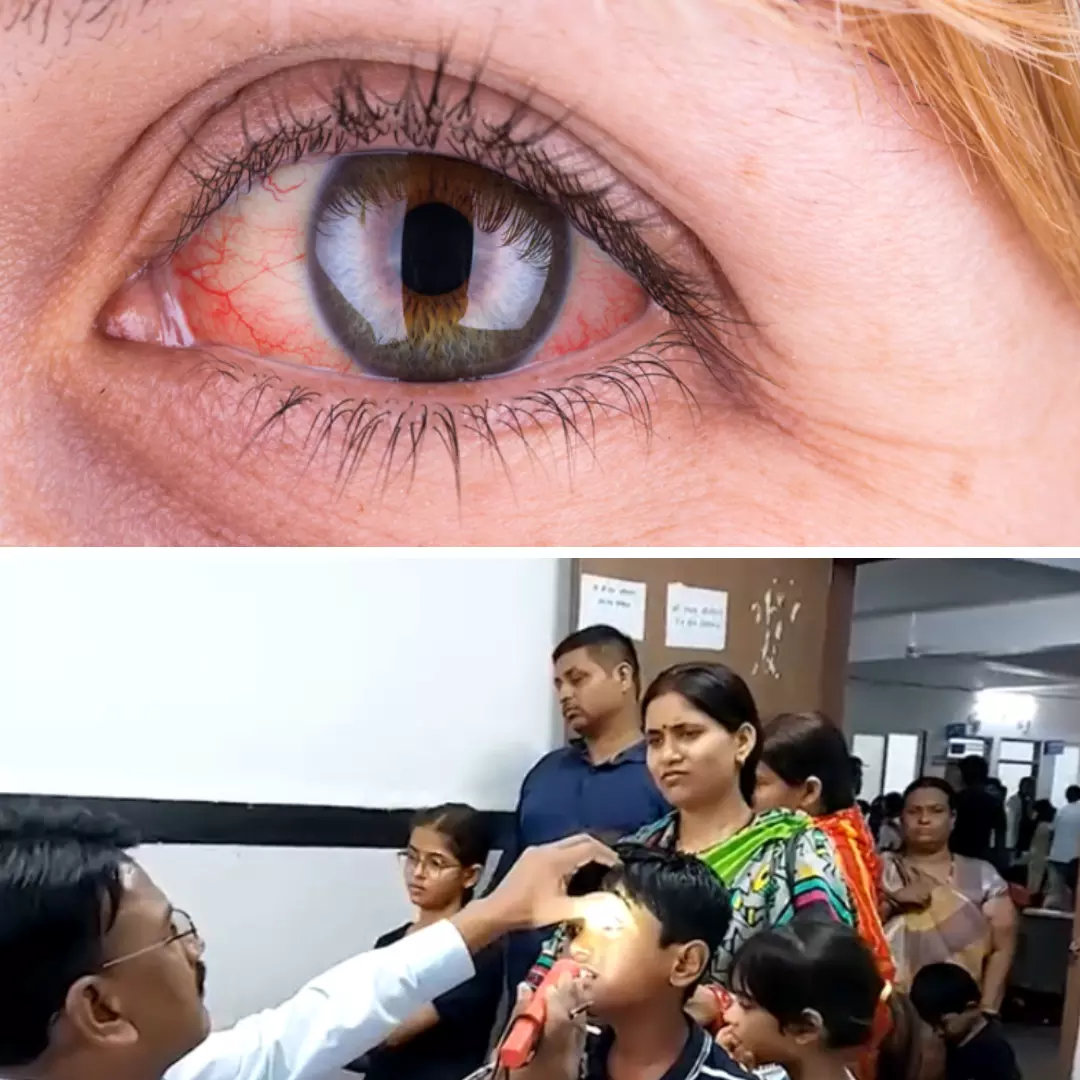The capital city of India, Delhi, is grappling with an unexpected surge in conjunctivitis cases following heavy rains, waterlogging, and floods in the region over the past few days. The outbreak has been particularly pronounced in areas situated along the banks of the Yamuna River, which experienced a rise in pink eye incidents after the floodwaters receded.
Delhi’s Health Minister, Saurabh Bharadwaj, issued a statement on Tuesday, highlighting that hospitals across the city are on high alert to manage the increasing cases of conjunctivitis. He emphasized that the majority of affected individuals are from the younger population. According to Bharadwaj, the spike in cases is attributed to the humid conditions prevailing in the air, as per a report in CNBC.
Conjunctivitis, commonly known as eye flu, is an infectious eye condition primarily caused by viruses. It is highly contagious and can easily spread from one person to another. The infection occurs when the conjunctiva, the transparent membrane covering the eye, becomes inflamed, resulting in the characteristic pink appearance.
Various allergens or irritants, such as smoke, dust, pollen, and chemicals, can also trigger conjunctivitis. Additionally, wearing contact lenses for prolonged periods or not properly cleaning them can lead to eye infections. Symptoms of conjunctivitis may vary from person to person but typically include redness, swelling, and itching in the eyes. Affected individuals may also experience excessive tearing at the onset of the flu.
Treatment for conjunctivitis usually involves a combination of medications. Artificial tears or lubricating eye drops are commonly used to maintain eye moisture, providing relief. Warm or cold compresses can help reduce inflammation and swelling.
Preventive measures play a crucial role in avoiding the inconvenience caused by the infection. Practicing good hygiene, such as regular handwashing and avoiding touching the eyes with unwashed hands, is essential. Personal belongings like towels, lenses, or glasses should not be shared to prevent transmission.
Residents residing in close proximity to the Yamuna River banks are advised to be particularly mindful of personal hygiene due to the potential for easy virus transmission through the air. Wearing clear and clean glasses and refraining from touching the eyes with unclean hands can help avoid contracting the eye flu.
Individuals who notice any signs or symptoms of conjunctivitis should promptly seek medical attention to receive appropriate treatment and prevent further spread of the infection.
Dengue Cases In Delhi
The first seven months of 2023 have seen an uptick in dengue cases in the city compared to the corresponding period last year, according to MCD data.
Between January 1 and July 22 this year, Delhi has reported 187 cases of the infection. The early trends suggest that after a gap of five years, dengue cases are on the higher side. During the same period, the city reported 49 cases in 2018; 34 in 2019; 28 in 2020; 47 in 2021 and 159 in 2022. Overall, the highest cases in a year were reported in 2021, at 9,613.
Though the dengue fatality rate has remained low in the past few years, experts said the risk cannot be ignored. They noted that a person has a higher chance of being infected with dengue for a second time as a new strain can attack the body again and lead to development of serious symptoms.
This year, Delhi faces higher chances of a spike in vector-borne diseases. While the floodwaters have receded, experts have warned that they may remain stored in certain areas, making them breeding grounds for mosquitoes, reported The Times Of India.
In the past one week, the city has reported 19 new malaria cases, taking the tally till July 22 to 65. The corresponding figures for the January 1-July 22 period in 2020, 2021 and 2022 were 40, 20 and 33, suggesting that the overall number of cases this time may be higher.
Delhi government, meanwhile, has been taking precautionary measures to avert a surge in vector-borne diseases. Health minister Saurabh Bhardwaj has held meetings with stakeholders, including civic bodies and the education department. While MCD is planning to deploy drones for surveillance, schools have been asked to instruct students to wear full-sleeve clothes till November to avoid mosquito bites.
Also Read: Internet Ban In Manipur Partially Eased, Broadband Services Allowed
https://thelogicalindian.com/h-upload/2023/07/27/500x300_232711-web-18-2.webp
Trending
2023-07-27 11:33:17.0
Delhi Battles Sudden Outbreak of Conjunctivitis After Heavy Rains & Flooding











